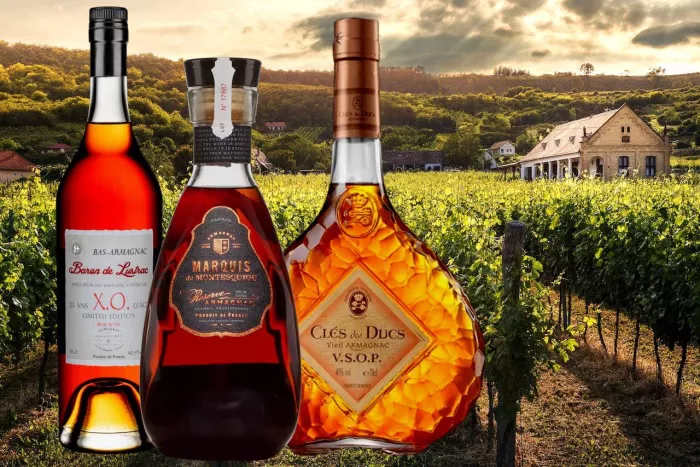When it comes to spirited debates over alcoholic beverages, the comparison between raki and vodka often takes center stage. Enthusiasts and connoisseurs alike engage in discussions about the strength, flavor, and cultural significance of these two potent libations. To decipher the mystery of which one is truly mightier, we delve into the depths of the distillation process, ingredients, and the cultural nuances that shape these iconic spirits. So, is raki stronger than vodka, or does the latter reign supreme in terms of intensity?
The Origins and Craftsmanship: Raki’s Anatolian Heritage vs. Vodka’s Eastern European Roots
To understand the strength of these spirits, it’s crucial to explore their origins and the craftsmanship behind their production. Raki, deeply rooted in Anatolian culture, is a traditional Turkish brandy that undergoes a meticulous distillation process. Predominantly made from grapes and aniseed, its journey from the vineyards to the bottle imparts a unique character. On the other hand, vodka, with its Eastern European roots, is typically crafted from grains like wheat or rye. The distillation process for vodka is renowned for its purity, resulting in a neutral spirit that acts as a clean canvas for mixologists and drinkers alike. In this clash of traditions, is raki stronger than vodka in terms of heritage and craftsmanship?
Alcohol by Volume (ABV): The Metric of Potency
One of the fundamental metrics in determining the strength of any alcoholic beverage is the Alcohol by Volume (ABV) percentage. The higher the ABV, the more potent the spirit. In the realm of ABV, both raki and vodka flex their muscles, each showcasing a formidable concentration of alcohol. Raki typically ranges between 40% to 50% ABV, with variations depending on the distillation process and regional preferences. Vodka, renowned for its purity and versatility, commonly boasts an ABV ranging from 40% to 50% as well. But in this head-to-head comparison, is raki stronger than vodka in terms of alcohol content, or do they stand on equal ground?
See Also: Which is Better Whiskey or Brandy?
Flavor Profile: Anise vs. Neutrality
Moving beyond the numerical realm of ABV, the flavor profile of these spirits adds another layer to the comparison. Raki, infused with the distinctive taste of aniseed, delivers a complex and aromatic profile that is an acquired taste for many. The anise flavor not only contributes to the intensity but also defines raki’s unique character. On the flip side, vodka prides itself on neutrality. The absence of strong flavors allows vodka to blend seamlessly into cocktails or stand alone, providing a canvas for creative mixology. So, when pondering the question “Is raki stronger than vodka?” the answer may lie not only in alcohol content but also in the flavor journey these spirits offer.
Cultural Significance: Raki’s Rituals vs. Vodka’s Global Appeal
The strength of a spirit often extends beyond its physical potency and into the cultural realm. Raki, deeply ingrained in Turkish culture, is often associated with rituals and social gatherings. The traditional “lion’s milk” ritual involves diluting raki with water, turning the clear liquid into a milky white elixir. Vodka, on the other hand, has achieved global fame and is a staple in bars and households worldwide. Its versatility makes it a go-to spirit for classic cocktails and modern mixology. So, in the battle of cultural significance, is raki stronger than vodka in its ties to tradition, or does vodka’s global appeal give it the upper hand?
Mixability and Cocktails: Vodka’s Versatility vs. Raki’s Distinct Presence
For many, the strength of a spirit lies in its versatility in the world of mixology. Vodka, often referred to as a “blank canvas,” effortlessly blends with various ingredients, allowing mixologists to create an array of cocktails. Its neutral profile makes it an ideal base for everything from classic Martinis to trendy craft concoctions. Raki, with its bold anise flavor, may not be as chameleon-like as vodka, but it brings a distinct presence to the mix. Cocktails like the classic Turkish cocktail “Leyla,” combining raki with soda and lemon, showcase its unique ability to shine in specific concoctions. So, when considering mixability, is raki stronger than vodka in carving its niche, or does vodka’s versatility make it the reigning champion?
Hangover Potential: The Morning After Showdown
An unavoidable aspect of consuming potent spirits is the dreaded morning-after hangover. As seasoned drinkers know, the strength of a hangover can be influenced by factors beyond ABV, including congeners and impurities present in the spirit. Raki, with its complex flavor profile, may contain more congeners than the purer vodka. Congeners are byproducts of fermentation and can contribute to the severity of a hangover. In this aspect, is raki stronger than voda in its potential to leave a lasting impression the morning after, or does vodka’s clarity ensure a smoother recovery?
The Verdict: Deciphering Strength Beyond Numbers
In the quest to determine whether raki is stronger than vodka, it’s evident that the definition of strength goes beyond a simple comparison of ABV percentages. Raki, with its anise-infused complexity and cultural rituals, stands as a robust symbol of Turkish heritage. Vodka, known for its neutrality and global acclaim, represents a versatile and widely appreciated spirit. The answer to the question lies in individual preferences, cultural affiliations, and the desired drinking experience.
Conclusion: A Spirited Journey of Discovery
As we conclude our exploration into the realms of raki and vodka, the question “Is raki stronger than vodka?” remains subjective and open to interpretation. The clash of these titans in the spirits realm unveils a rich tapestry of tradition, craftsmanship, and cultural significance. Whether sipping raki in a traditional Turkish meyhane or enjoying a vodka-based cocktail in a cosmopolitan bar, the strength of these spirits is not solely measured in ABV but in the stories they tell and the experiences they create. In the end, the true strength lies in the hands of the beholder, raising a glass to the diversity and richness of the world’s most beloved spirits.


